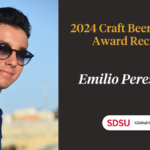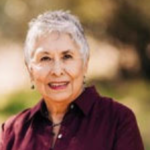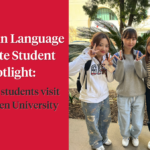
Debbie Carson
Debbie Carson is a fourth generation Californian and was raised in the Los Angeles area. “I didn’t go to college full time after high school; I had to work. Luckily I went to work for IBM Corporation and while I was there, I started as receptionist typist. I worked my way up and began working in the employment office while taking college courses at night,” she says.
She became an employment interviewer (was the youngest person to do so and the only person without a college degree). Carson met her future husband at IBM – he was a computer systems engineer. They got married and later moved to Orange County, where they decided that Carson would quit her job and go to college full time. After earning her bachelor’s degree the couple moved to San Francisco where she was accepted into law school at the University of San Francisco. They spent five years in the Bay Area, and later moved to Fresno, where she worked for the public defender. During those days (1970s), there weren’t many women lawyers; however, the Fresno public defender was very open to women in the workplace and was supportive of her career. For eight years Carson worked in Fresno and then moved to San Diego when her boss was offered the job of starting a Public Defender’s office in San Diego.
The year was 1984 and Carson became one of the first public defenders in San Diego. With the help of Carson, the Public Defender’s office grew from an original 15 lawyers to well over 100 lawyers today. She says, “When I came down to San Diego I had some serious cases – death penalty for example. I continued my career until I retired from the Alternate Public Defender’s office in 2006.” When Carson retired she decided to do more “fun stuff” like taking Osher classes and using her dog as a therapy dog, for which they went through training together.
“The classes have been really diverse. I’ve had some outstanding instructors. The classes are always fun with lots of participation from students,” Carson adds. She has also made good friends in classes, “There’s one couple who I just think are a delight and I have become good friends with them and we do things outside of class. Osher students in general love to learn and are excited about learning. Everything now for me is for the beauty of learning and sharing that with people. Osher students have different backgrounds and given the age of the students, you know, there’s so much to share. I think even the teachers like teaching the older students.”
Recently, Carson got involved as an Osher volunteer for the Aztec Mentor Program. “I got a flyer about the program and thought it would be a good thing to do, since I mentored law students in the past. Osher students who had careers, who’ve been out there in the working world, who have ideas about how to work and how to get a job, is a perfect group to tap into as a resource, and we make very good mentors. I’m currently mentoring a young woman who has questions that would not be answered in class. This program is a great way to exchange information – for me it’s a great way to get to know a young person, exchange different ideas, and to help them think about what they may need in the future.”
The relationship is a positive one for both parties. The SDSU student is not from a family of lawyers, and has no connection to other lawyers, so Carson has been a beneficial resource to her. “If she were going to practice in the San Diego area, this is a great way for me to introduce her to people in the field. I’ve taken her to a couple legal events to give her an idea of what’s going on in San Diego. I have suggested that she do volunteer work – this is how you make contacts in the field, and it looks good on your resume. I am very willing to work with the people in the mentoring program and advise Osher students to look into being mentors.”




